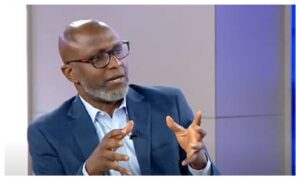The Nigerian government is planning a significant change to the tax system that may require wealthy individuals earning over N100 million per month to pay a 25% income tax. Taiwo Oyedele, who leads the Presidential Fiscal Policy and Tax Reforms Committee, shared this proposal at the recent 30th Nigeria Economic Summit in Abuja.
Oyedele pointed out that about 90% of current taxpayers should not be taxed, indicating a need for a fairer and more efficient tax system. He stressed the importance of balancing the tax burden, ensuring that lower-income earners have less tax to pay while encouraging the wealthy to contribute more to government revenue.
“If you earn N100m a month, we are taking up to 25 per cent from the rich people. That’s because we need to balance the books,” Oyedele stated.
If the proposed tax bill is approved, these changes could take effect in January 2025. The plan includes reducing taxes for middle-income earners who make N1.5 million or less each month. In contrast, those with higher incomes will see their tax rates gradually increase until they reach the 25% mark. Lower-income earners will be completely exempt from personal income tax.
“Today, whatever VAT you (businesses) pay on assets—whether you’re building a factory, buying a laptop, or vehicles—you bear it. This increases your cost, and therefore, your pricing will go up. Once our reforms are implemented, you get the credit back 100 per cent on services and assets.
People will pay tax once we decide that they have to pay. What we realize is that almost 90 per cent of people who are paying taxes are those who should not have been paying in the first place.
So that’s where we came up with the data that 97 per cent of the informal sector should be formally exempted from taxes. People do not understand where we are coming from. They’re not the ones to pay taxes. They’re just trying to survive.”
Oyedele also highlighted that inflation acts as an unregulated tax, reducing the value of money for the population. He expressed concern that too many tax incentives can harm the economy. Therefore, the committee is focused on eliminating unnecessary incentives to relieve businesses without impacting government revenue.
“We cannot give all the incentives you are asking for. We think the biggest low-hanging fruit is removing these incentives, and that’s exactly what we are doing,” Oyedele said.
In a positive move for businesses, the corporate income tax rate is expected to drop from 30% to 25%. Oyedele described this change as substantial. Additionally, there may be reductions or eliminations of VAT on essential items like food, healthcare, education, housing, and transportation, which heavily impact lower-income households.
However, not all sectors will benefit from reduced tax rates. For some goods and services, VAT may increase to help balance government revenue. To ensure that the right individuals are paying taxes, Oyedele’s committee plans to use primary data identification methods to accurately determine which taxpayers belong in the tax bracket.
Overall, these proposed tax reforms aim to create a more equitable system that supports lower-income earners while ensuring that wealthier individuals contribute fairly to the country’s revenue.







